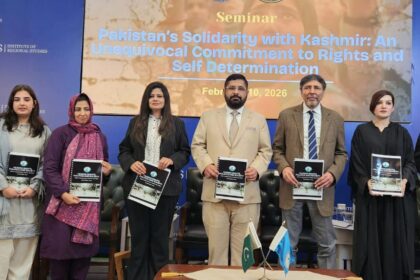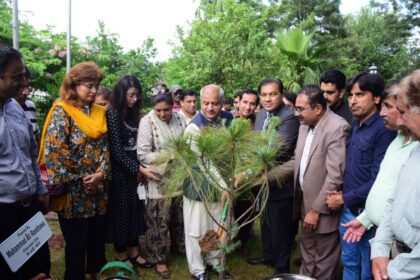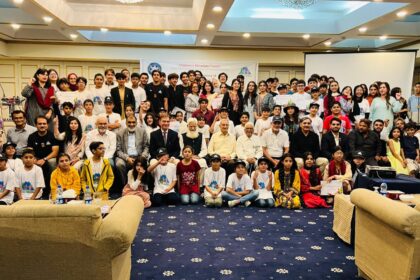The National Institute of Health (NIH) and the World Health Organization (WHO) inaugurated an awareness walk in Islamabad to mark the start of World Antimicrobial Resistance Awareness Week, observed from November 18 to 24. The event brought together health experts, government officials, development partners, civil society and media with the aim of strengthening AMR Awareness among both the public and health professionals.
The 2025 global theme, “Act Now: Protect Our Present, Secure Our Future,” underscored the urgent need for coordinated, cross-sectoral action. Organisers stressed that AMR Awareness must translate into concrete measures across human, animal and environmental health to prevent common infections from becoming life threatening again.
Antimicrobial resistance arises when bacteria, viruses, fungi and parasites stop responding to medicines, making standard treatments ineffective. Described by organisers as a silent pandemic, AMR is eroding decades of medical progress and requires immediate attention at community and facility levels.
Dr. Muhammad Salman, CEO NIH, said combating resistance demands a comprehensive One Health response. He pointed to key drivers of resistance in Pakistan including irrational prescribing, over-the-counter antibiotic sales, weak infection prevention and control in hospitals and communities, and misuse of antimicrobials in agriculture and livestock.
Dr. Luo Dapeng, WHO representative in Pakistan, welcomed Pakistan’s new national priority pathogen list developed with WHO support, noting it is the first in the Eastern Mediterranean Region and among the first lists globally. He described the step as a milestone that will guide surveillance and stewardship efforts.
The awareness walk highlighted core pillars of Pakistan’s National Action Plan on AMR: strengthening surveillance across human and animal sectors, boosting awareness and education for the public and professionals, and enforcing infection prevention and control in healthcare facilities. The NIH urged policymakers, healthcare providers, veterinarians, farmers and citizens to turn political commitments into tangible, life‑saving actions and to practice responsible antimicrobial use during the week and beyond.











